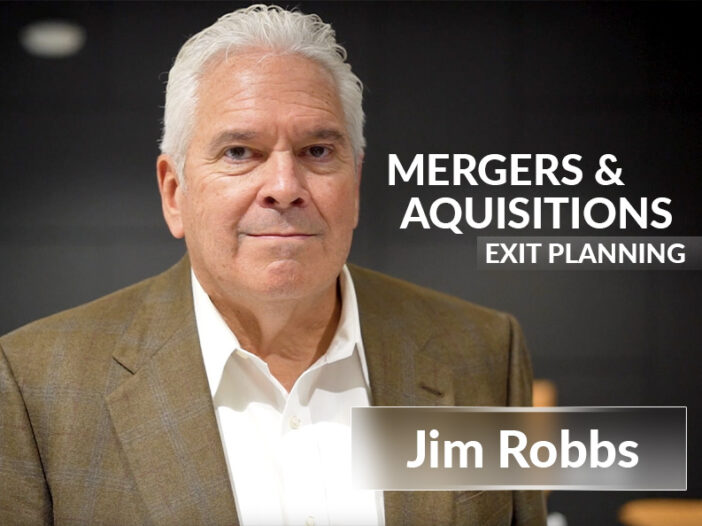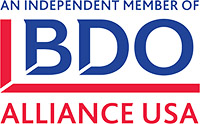
By Jim Robbs
I’m Jim Robbs and I am one of the partners here at Sassetti LLC. I spent about 18 years at a larger mid-sized public accounting firm where I was involved in a variety of acquisitions and divestitures of companies. I then became the CFO of a larger, publicly held circuit board manufacturer and we made two large acquisitions while I was there. I’ve spent the last 20 years here at Sassetti, a small to mid-sized accounting firm, and have been involved in a variety of acquisitions and divestitures in the industries that we service.
Q: We hear a lot about various mergers and acquisitions in the news. Do these stories align with what you’re seeing in the M&A marketplace?
A: Well, certainly the things that everybody reads about and hears about in the news are the mega-mergers—more recently, the Jewel and Kroger potential. But in the middle market, there are many acquisitions that occur every year. There are tens of thousands of companies in the middle market. “Middle market” includes some companies between 10 million and a billion dollars in sales. There are statistics out there that suggest that up to 60 percent of those companies are owned by individuals who are 55 years and older. That puts a lot in the baby boomer range. There’s a notion that the average age of ownership at those companies is potentially 67-68 years old. So at some point in the future, there’s going to have to be some transition of the business.
Q: And what are an owner’s options when they’re in this position?
A: Well, there are three common options, one of which is probably not the best for them – shut your doors and go away. Some businesses end up that way just because there’s not a lot of value. The second option is to look toward family or potentially an ESOP – an employee stock ownership plan – where you include various management people who are truly involved in the business, as well as maybe some family. The last option would be to sell, and most sales go to either a strategic buyer or a financial buyer.
Q: Out of these options – generation to generation transition, an ESOP, or a debt investor or strategic buyer – which do you see most often?
A: Certainly when you look at generational transitions, very few of those succeed. There’s a perception that fewer than 10 percent of those actually do end up succeeding, so perhaps the most viable option is an outright sale. Where it goes—whether it’s a strategic buyer or a financial buyer—really depends on your business, and the marketplace.
Q: What should owners and businesses be doing to prepare for this?
A: Whether it’s an owner or a business, they should always be preparing for a sale. You should always be preparing your company to have the best value at any point in time. It’s not like selling a car or a house. There are preparations that need to be done well in advance of any sale. Sometimes, you need to prepare three to five years in advance. Owners need to work on the business, not just in the business. I think a lot of people understand that working in the business means you’re just dealing with operations day after day. But to step back and work on the business, there are a different set of considerations. Have you developed a proper management team to take over? Ultimately, you’re going to leave the business. When you do, your management team will have to continue in place, whether it’s operations, sales, engineering, etc.
You want to make sure that you have good financial records. Are your financials clean, do you have them prepared timely, and what is the best way to show a potential buyer that the company has a sustainable financial future?
Q: And who normally needs to be involved in this plan?
A: Aside from bringing in your close family and maybe some of the management team, you really should bring in your professionals. Don’t keep them in a silo. You should bring in your attorney, your CPA, your wealth advisor, and then possibly even a business broker. You need to bring that team together so that they can establish the best option for you to be able to sell and to know whether you will want to continue in the business, maybe for a couple years. Do you want to get out right away? Do you want all the cash up front? Do you want to take hard stock in the deal? There are many options and to have your professional team at the table is worthwhile.
Q: So, if I’m a buyer or an owner in this situation, how do I find a broker?
A: I wouldn’t necessarily take the first phone call or email I get. I would go to my CPA or attorney and try to identify somebody who’s a trusted individual in that area.
Q: Currently in the marketplace, how long does it take for a deal to close?
A: I think some people think that this can all happen like selling a house, and you can have it done in two months or less. To be realistic, I think it’s a 6 to 12-month process. Up front, you have to do a quality of earnings which takes some period of time. Your broker has to put together the book to summarize what the company is and where they’re going, and then you have the whole sale and due diligence process, so it’s easily a six to 12 month process.
Q: In anticipation of the due diligence process, what are some questions a buyer should be prepared to answer and documents they should be prepared to produce?
A: Probably every document you ever signed in your career. They might look at sales contracts and purchase order contracts. They’re going to look back at your last three to five years and they’re going to go into detail over who your customers are, what parts you’re selling to them, what your margins are and who you buy from. What are the opportunities for better purchasing? Are there limitations and you can only purchase something from one vendor? They’re going to go into great detail over your last three years’ financial information as well as some of the legal aspects of your business, potentially looking into whether something like a benefit plan has been operated in an appropriate manner throughout its life.
Q: How many buyers do you usually see involved in the bidding process?
A: I think when you deal with a broker who’s knowledgeable in the industry, you’re going to see that they spread the so-called “book” out to between 50 and 100 companies. They’ll draw an interest from maybe 10 or 12 and then generally you will whittle that down to the last two or three based on what their pricing looks like and what their deal structure might look like. Then negotiate from there.
Q: In a situation with a strategic buyer, oftentimes we see a “hold-back.” What is a hold-back and what advice would you give to someone considering a deal that has a hold-back as part of the transaction?
A: In general, you’re going to find that there’s an escrow for possibly two different line items, one being a minimum working capital that’s established up front at the closing date. The second is usually tied to legal situations—is there any fraud, or are there any other situations or areas in the business where there are shortfalls from what you had originally predicted? Those escrows are often 10 percent escrows, held for a period of 12 to 18 months. In the middle marketplace now, there’s also insurance that you can take out, warranty type insurance that could free you from all that. That’s been fairly recent in the middle market. It’s been something available to the large players, but there are companies out there that now offer that type of insurance in the middle market.
Q: And when you’re seeing these types of transactions, these types of deals, are they usually stock sales or asset sales?
A: Well, a seller wants to sell stock and a buyer wants to buy assets. So, you’ve got to come together somewhere in between. There are situations and tax structures that kind of combine them both. But I would say the vast majority of deals in the middle marketplace somehow end up being asset deals.
Q: Have you ever seen a deal go wrong or not work out to the best interest of the buyer?
A: I would say yes. There are definitely situations when buyers back out because the financial information is maybe not accurate, and the future is not as robust as the company may have laid out. Currently, we’re seeing interest rates rise and there is potential for a recession down the line. I think people are getting a little anxious about the marketplace, so that has certainly turned some deals around as well.
Q: If you’re in a position to transition your business to the next generation, are there certain things you need to do or people you need to involve to have the best possible outcome for that transition?
A: Absolutely. I think those transitions probably require your trusted advisors to be involved, even more so than in an outright sale because the transition has tax implications and wealth implications. Dealing with that situation up front and choosing the right advisors, even from the trust and legal side, are very important steps to that being an overall positive transaction.
Q: Is there anything that one might not anticipate would be a part of the process, but becomes a key part of the transition?
A: I think an owner goes through a variety of emotions during the deal as well as after the deal is closed. They have to prepare for the emotional separation they are going to have with the business, and sometimes that’s what causes a deal to go south. An individual is not really ready to do the deal.
Q: Do you find that it’s beneficial for an individual to think about what life would be like after the divestiture?
A: Absolutely. There are professionals out there to help you with that as well. But yes. What are you going to do? Do you have hobbies? How long do you want to stay involved in the business? That could be part of the deal structure. You could stay involved for the short term, or perhaps several years. Maybe you don’t want to stay involved at all, but you need to prepare yourself for what you are going to do in the “afterlife.”
Q: What are some key points that you’d like business owners to take away from this conversation?
A: To provide the best value for your company down the line, it takes planning. You want to anticipate gathering your trusted advisors, such that you can set targets for the company and its goals, and so that you achieve the best value down the line. It is important to plan well in advance.




